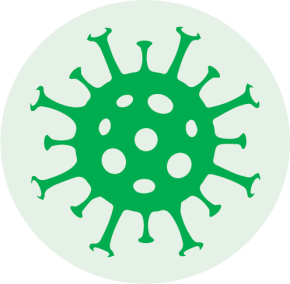
index
EDCTP portfolio: Emerging diseases


Disrupting urban COVID-19 transmission
The TraCE project will provide important data on the spread of COVID-19 in a crowded urban environment, and evaluate an intervention to limit the spread of infection in such settings.

The challenge
The spread of COVID-19 is highly dependent on environmental factors. Urban environments, where people are closer together, provide more opportunities for the virus to spread. In particular, high-density communities in low-income areas, where social distancing and good hygiene practices may be difficult to practise, could be extremely vulnerable to COVID-19.
A significant proportion of South Africa’s 55 million population live in urban and peri-urban areas, including informal settlements. It is vital to gain a better understanding of how COVID-19 spreads in such communities and how it can best be contained.

The project
The TraCE project aims to identify and follow 120 people with confirmed COVID-19, as well as their household contacts, in a resource-limited, densely populated community in Cape Town, South Africa. The project builds on well-established mobile screening units, which were set up to provide HIV counselling and testing services, alongside a wider range of health services. These, along with public sector clinics, will be used to identify cases.
A total of 120 households will be recruited and followed for one month, with half receiving an intensive infection mitigation intervention (STOPCOV) administered by lay health workers and the other half being given standard advice on infection prevention. The intervention includes guidance on infection control, basic supplies (such as masks and hand sanitiser), and regular telephone calls and text messages.
Cases and household contacts will record symptoms and be regularly tested, using molecular and antibody detection tests. As well as effects on the spread of infection, the study will also investigate adherence to the intervention and psychosocial impacts, for example on loneliness and social stigma. A process evaluation will assess the acceptability and feasibility of the intervention.

Impact
The TraCE project will provide key information on the spread of SARS-CoV-2 in a low-resource urban setting, including infection rates and the incidence of asymptomatic disease. It will also determine whether a practical intervention, tailored to the specific local context, is effective at reducing transmission of infection. The results will be highly relevant to South Africa, but also generalisable to other countries in sub-Saharan Africa with resource-poor urban and peri-urban communities.

EDCTP portfolio: HIV & HIV-associated infections
The CHAPAS trials have ensured that many more children with HIV have benefited
from life-saving antiretrovirals.

Bringing antiretroviral drugs to children
“
test the safety and efficacy of this new formulation in young children
”



The spread of COVID-19 is highly dependent on environmental factors. Urban environments, where people are closer together, provide more opportunities for the virus to spread. In particular, high-density communities in low-income areas, where social distancing and good hygiene practices may be difficult to practise, could be extremely vulnerable to COVID-19.
A significant proportion of South Africa’s 55 million population live in urban and peri-urban areas, including informal settlements. It is vital to gain a better understanding of how COVID-19 spreads in such communities and how it can best be contained.
The challenge
The later CHAPAS-3 trial compared the efficacy and safety of three fixed-dose combinations including two without stavudine (found to have some long-term side effects in adults, leading to a recommendation that its use be discontinued in children). The trial the first of its kind in Africa studied nearly 500 children at four sites in two African countries.
The project
The TraCE project aims to identify and follow 120 people with confirmed COVID-19, as well as their household contacts, in a resource-limited, densely populated community in Cape Town, South Africa. The project builds on well-established mobile screening units, which were set up to provide HIV counselling and testing services, alongside a wider range of health services. These, along with public sector clinics, will be used to identify cases.
A total of 120 households will be recruited and followed for one month, with half receiving an intensive infection mitigation intervention (STOPCOV) administered by lay health workers and the other half being given standard advice on infection prevention. The intervention includes guidance on infection control, basic supplies (such as masks and hand sanitiser), and regular telephone calls and text messages.
Cases and household contacts will record symptoms and be regularly tested, using molecular and antibody detection tests. As well as effects on the spread of infection, the study will also investigate adherence to the intervention and psychosocial impacts, for example on loneliness and social stigma. A process evaluation will assess the acceptability and feasibility of the intervention.
Projects: Children with HIV in Africa Pharmacokinetics and Adherence of Simple Antiretroviral Regimens (CHAPAS): CHAPAS-1 and -3
Project lead: Professor Chifumbe Chintu, University Teaching Hospital, Zambia (CHAPAS-1); Dr Veronica Mulenga, University Teaching Hospital, Zambia (CHAPAS-3)
Target population(s): Children with HIV
Sample size: 71 (CHAPAS-1); 480 (CHAPAS-3)
Countries involved: Ireland, the Netherlands, the UK, the USA, Zambia (CHAPAS-1); Uganda, Zambia (CHAPAS-3)
Project duration: 2005–2009 (CHAPAS-1); 2010 –2011 (CHAPAS-3)
EDCTP funding: €1.2M (CHAPAS-1); €4.6M (CHAPAS-3)
Total project funding: €1.2M (CHAPAS-1); €5.0M
L’homme RF et al. Nevirapine, stavudine and lamivudine pharmacokinetics in African children on paediatric fixed-dose combination tablets. AIDS. 2008;22(5):557–65.
Mulenga V et al. Abacavir, zidovudine, or stavudine as paediatric tablets for African HIVinfected children (CHAPAS-3): an open-label, parallel-group, randomised controlled trial. Lancet Infect Dis. 2016;16(2):169–79.
WHO. Guidelines on the use of antiretroviral drugs for treating and preventing HIV infection: recommendations for a public health approach. 2010.
WHO. Consolidated guidelines on the use of antiretroviral drugs
for treating and preventing
HIV infection: Recommendations for a public health approach
(second edition). 2016
Impact
ratios forfixed-dose combinations and on appropriatedosage according to weight.
The CHAPAS-3 trial confirmed the effectiveness of fixed-dose combinations, providing further impetus to the rollout of antiretrovirals to children. Its evidence on abacavir informed the WHO recommendation of abacavir-containing combinations for first-line therapy in children. Trial data have also been used to support applications for regulatory approval for new scored efavirenz tablets.
The TraCE project will provide key information on the spread of SARS-CoV-2 in a low-resource urban setting, including infection rates and the incidence of asymptomatic disease. It will also determine whether a practical intervention, tailored to the specific local context, is effective at reducing transmission of infection. The results will be highly relevant to South Africa, but also generalisable to other countries in sub-Saharan Africa with resource-poor urban and peri-urban communities.